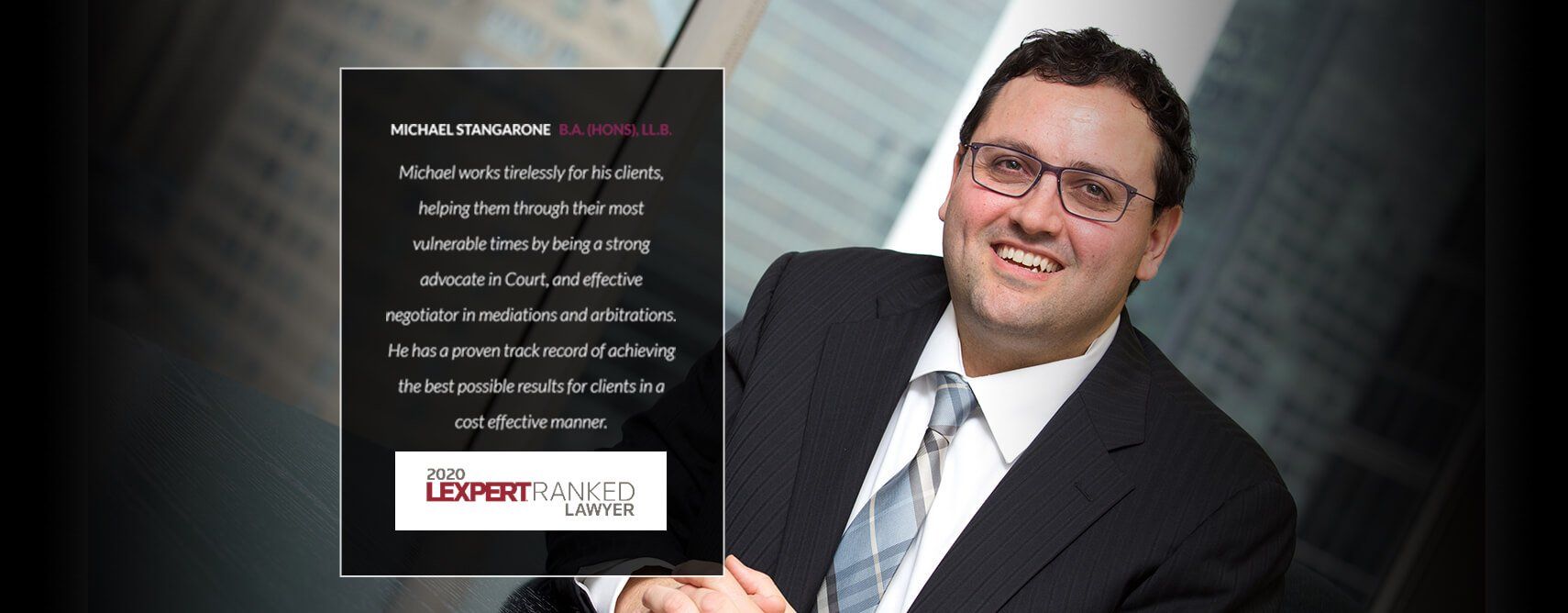Gary Joseph | Jan 2020
The website for the Law Society of Ontario (LSO) states that it exists to govern the legal profession in the public interest. LSO governs its members through the Rules of Professional Conduct (the Rules). Professional standards for lawyers are governed by these regulatory codes but also by legal standards determined and imposed by the courts and by statute. The distinction between regulatory and court-imposed standards are often theoretical but at times not. The most recent example of where these standards may conflict can be found in the now resolved dispute between lawyer Joseph Groia and the LSO.
This article is not offered as analysis of the various decisions in Groia nor an opinion piece on its ultimate impact on the profession. Groia will simply be referred to in the context of the plethora of duties owed by practising lawyers and the difficulties in gaining consensus among the bar, the bench and the LSO as to what they all mean and more importantly, how they intersect and impact daily practice. Finally, I will consider whether these duties are congruous with the practice of law in our modern society.
Duties and the LSO
The LSO Rules are an admirable, well-organized summary of the various duties owed by the practising lawyer, drafted from a regulatory point of view.
Historically, there was a debate as to whether the Rules should be inspirational or solely regulatory. Should they inspire professional conduct or create a minimum standard to which members of the profession will be held accountable? The sensible compromise reached by the most recent version of the Rules is that they now embrace both purposes but distinguish them clearly. They use both mandatory language: “shall,” where compliance is subject to regulatory sanction for failure and, “should,” where it is merely inspirational.
Duties and the courts
The Supreme Court of Canada has weighed in on the duties owed by lawyers to the administration of justice. The court has made it clear that its pronouncements on these duties are not limited to “in court” conduct. In Quebec v. Jodoin 2017 SCC 26, the court confirmed that lawyers, as officers of the court, have a duty to respect the court’s authority and that the courts have the right and duty to supervise the conduct of lawyers. The court in Jodoin also pointed out that the courts do not have to rely upon law societies to oversee and sanction any conduct by lawyers that they may witness. In an earlier decision, R. v. Cunningham 2010 SCC 10, the court held that “as counsel are key actors in the administration of justice, the court has authority to exercise some control over counsel when necessary to protect its process.”
Groia
Groia’s disciplinary proceedings arising from the spectacular downfall of a mining company are well known to the profession. His battle with the LSO went all the way to the SCC. The tension between court control and LSO control over counsel is best illustrated in the writings of the Ontario Court of Appeal (ONCA) in both majority holding and dissent. Justice Eileen Gillese, writing for the majority, upheld the LSO discipline proceedings of Groia, while the forceful dissent of Justice David Brown found to the contrary. For a student of the law, these contrasting writings are an exciting illustration of two powerful but opposing views based upon the same fact situation.
The SCC reversed the ONCA (LSUC v. Groia 2018 SCC 27) and Groia was vindicated and became the recipient of a large cost award against the LSO. The SCC affirmed that its role in controlling conduct of counsel is separate from the role played by law societies in regulating lawyer’s conduct. The court noted that its authority is preventative (to protect the administration of justice) whereas the law society’s role is reactive.
Multiple duties and modern practice
The Rules most certainly guide the lawyer to be competent, professional and ethical. The courts guide lawyers in the presentation of cases and in conduct generally that respects and fosters the proper administration of justice. However, there are often competing duties imposed upon lawyers that require delicate balancing that often is easier said than done. For example, Rule 5.1.1 requires the lawyer to balance the interests of the client with his/her obligations to the court, the profession and the law.
The duty to the client is to raise fearlessly every issue, advance every argument, and ask every question, however distasteful, which the lawyer believes will help the client’s case and to endeavour to obtain for the client the benefit of every remedy and defence authorized by the law. But that duty is juxtaposed with the lawyer’s obligation to do all that by fair and honorable means, without illegality and in a manner that is consistent with the lawyer’s duty to treat the court with candour, fairness, courtesy and respect in a way that promotes the parties’ right to a fair hearing where justice can be done.
To parse those multiple and sometimes incongruent duties is painstaking and can create legal and ethical dilemmas for counsel. Meeting the demands of an ever demanding clientele in a highly competitive work environment is taxing and layers on further stressors.
Let me suggest that today’s lawyer not only has to answer to the LSO and/or the courts for his/her conduct but the ever growing and fully unregulated Internet. Social media, rating websites and alike are constantly used by disgruntled clients or opposite parties to disparage lawyers and their representation of clients. Lawyers are defenseless to these postings and ratings that are often unfair and inaccurate. While trying to meet the very high standards rightly imposed by the LSO and the courts, some lawyers may find that in the court of public opinion — in this case, social media — their ethically pure conduct is condemned. The public and clients in particular are not attuned to the multiple duties lawyers carry as servants of the law. Clients care most often about one thing; their case or file. They are intolerant of the lawyer’s obligation to the administration of justice.
A useful example of this arises when counsel is obligated as an officer of the court to fairly advise the court of precedent contrary to his/her client’s position, even if opposing counsel has failed to do so. The administration of justice is served by this requirement that protects the integrity of stare decisis and fosters consistent judgments. However, to the client, this is often outrageous and unexplainable conduct on the part of the lawyer hired to champion their case.
Lawyers will continue to serve two and more masters in the representation of clients in and out of our courts. Groia’s multiple-year struggle and the varying views on the dispute at all levels of regulatory tribunals and courts best illustrates the tensions that define these concerns. Better education of the public, led by the LSO, would be helpful in easing some of these tensions and relieving practisng lawyers of some of the pressures upon them as they try to meet the demands of all of their “masters” while practising in a competitive market.
Gary S. Joseph is the managing partner at MacDonald & Partners LLP, family law practitioners, with kind assistance from senior associate, Elissa Gamus.




